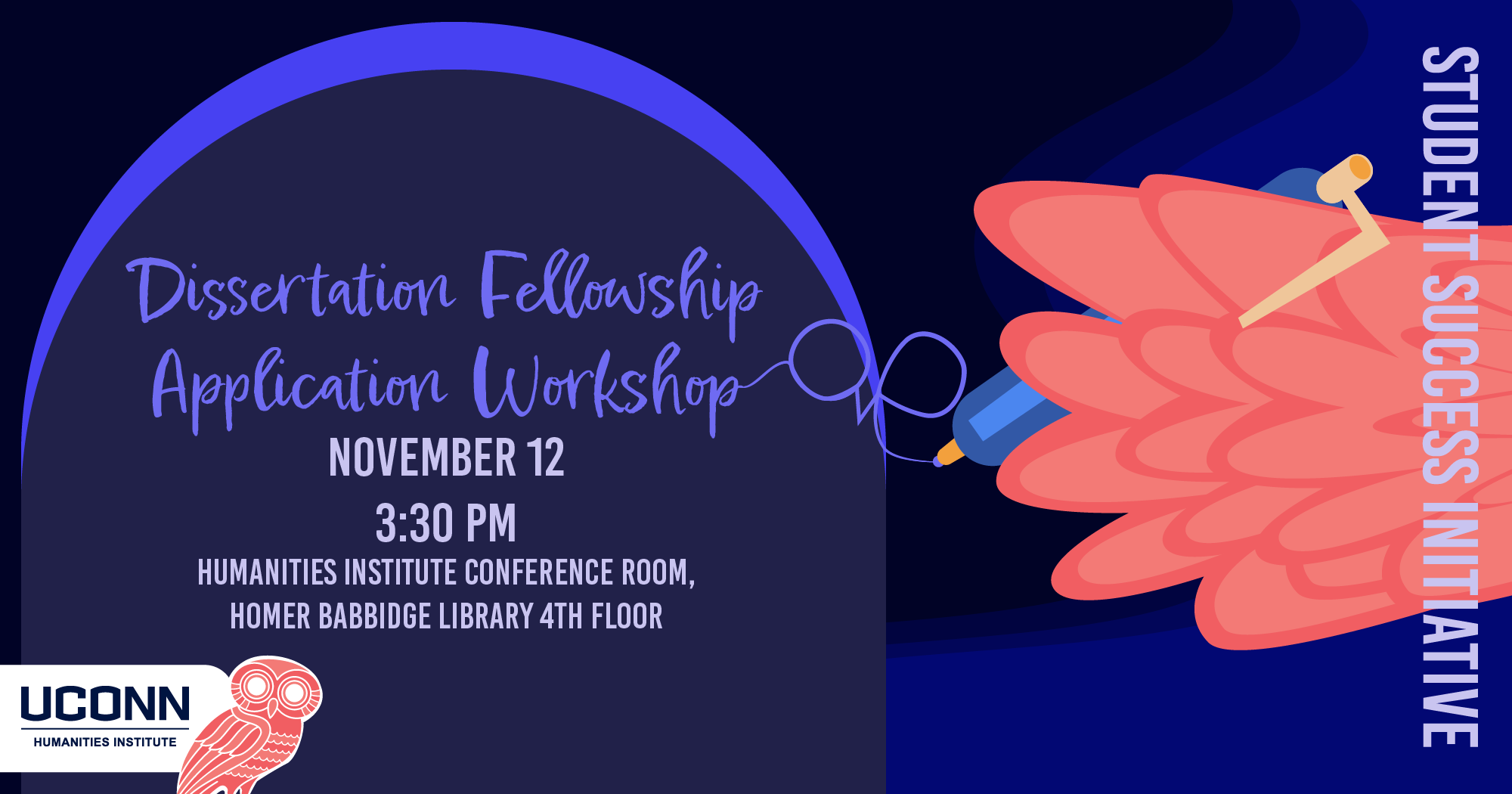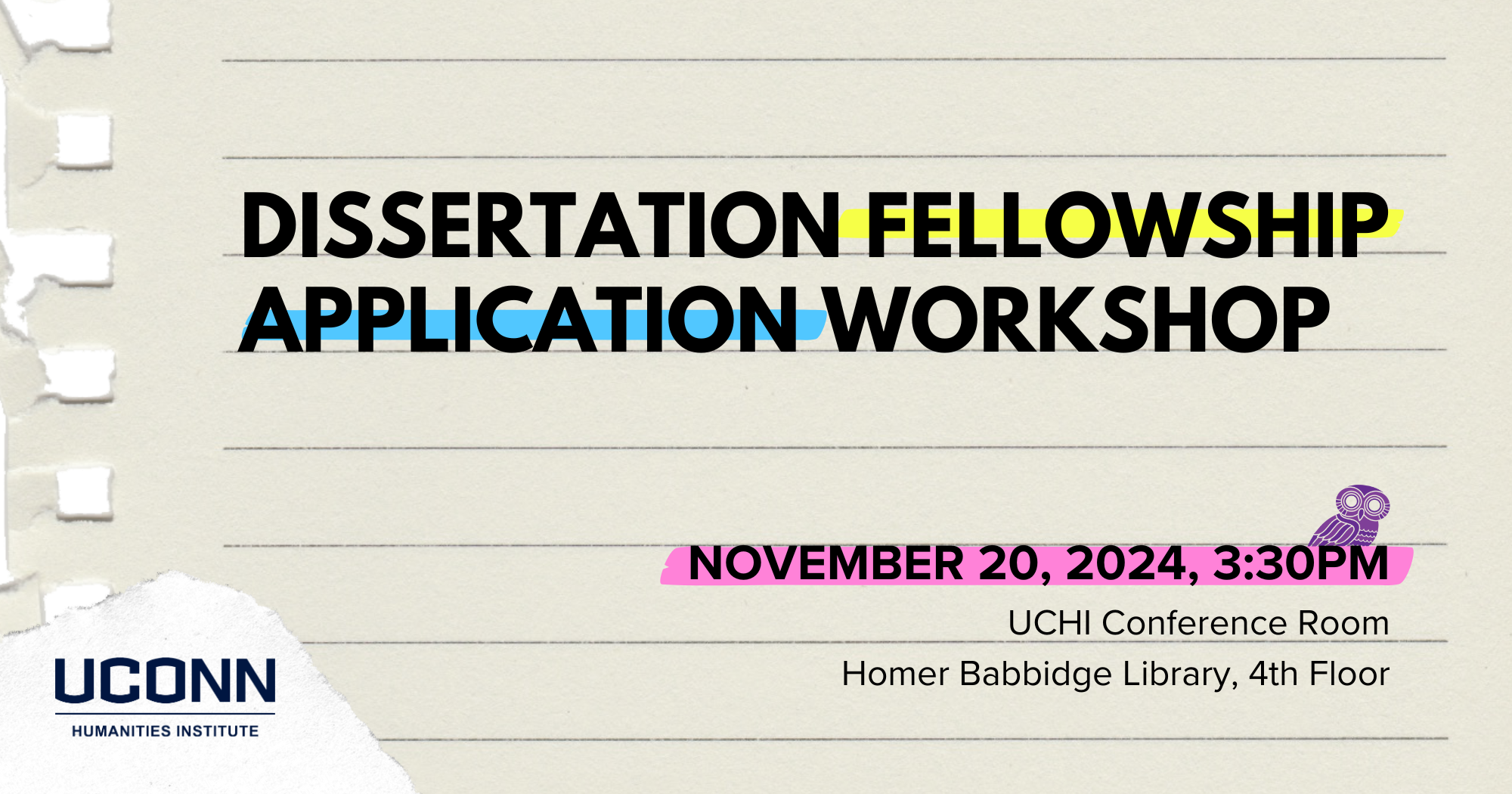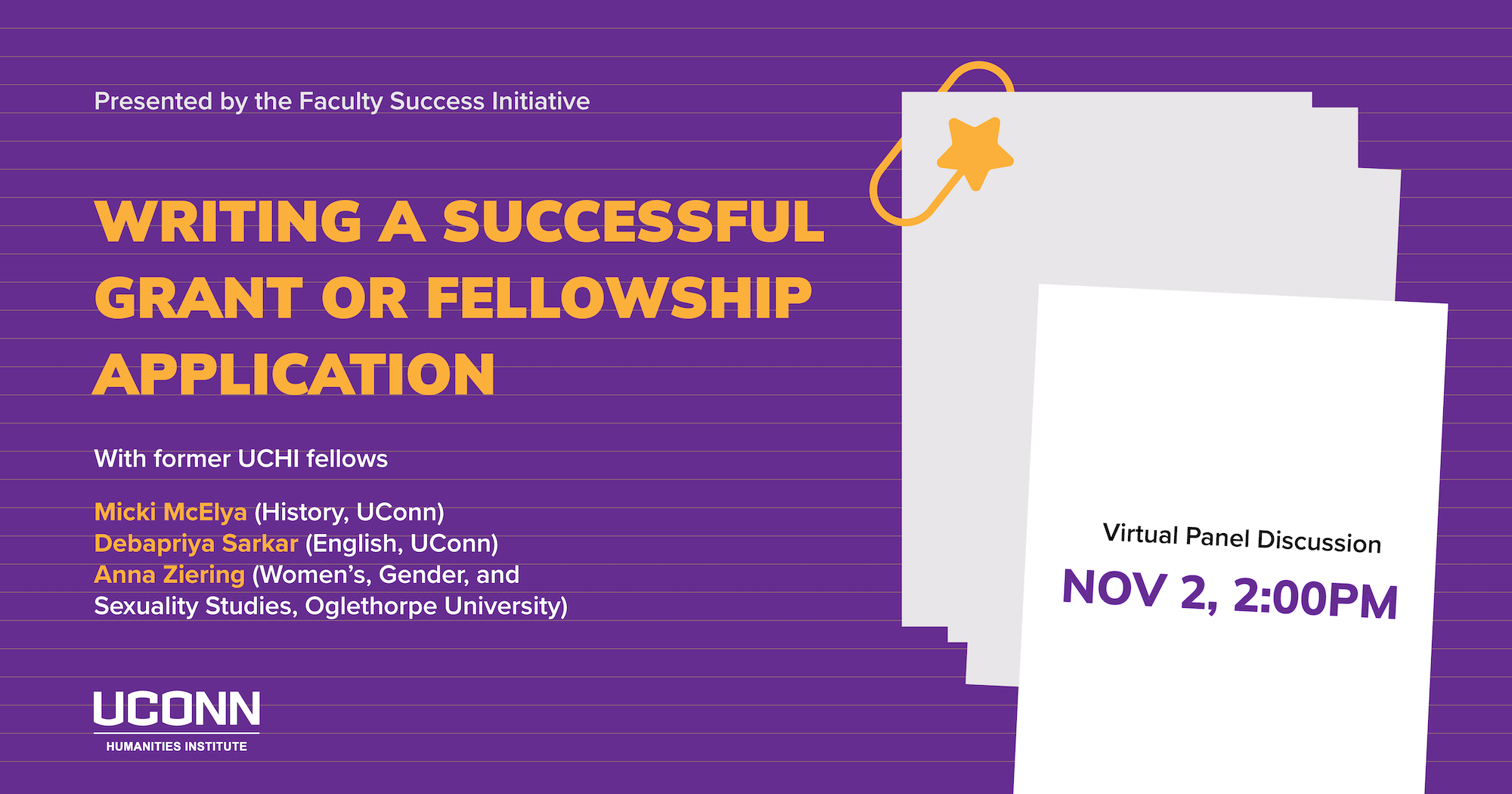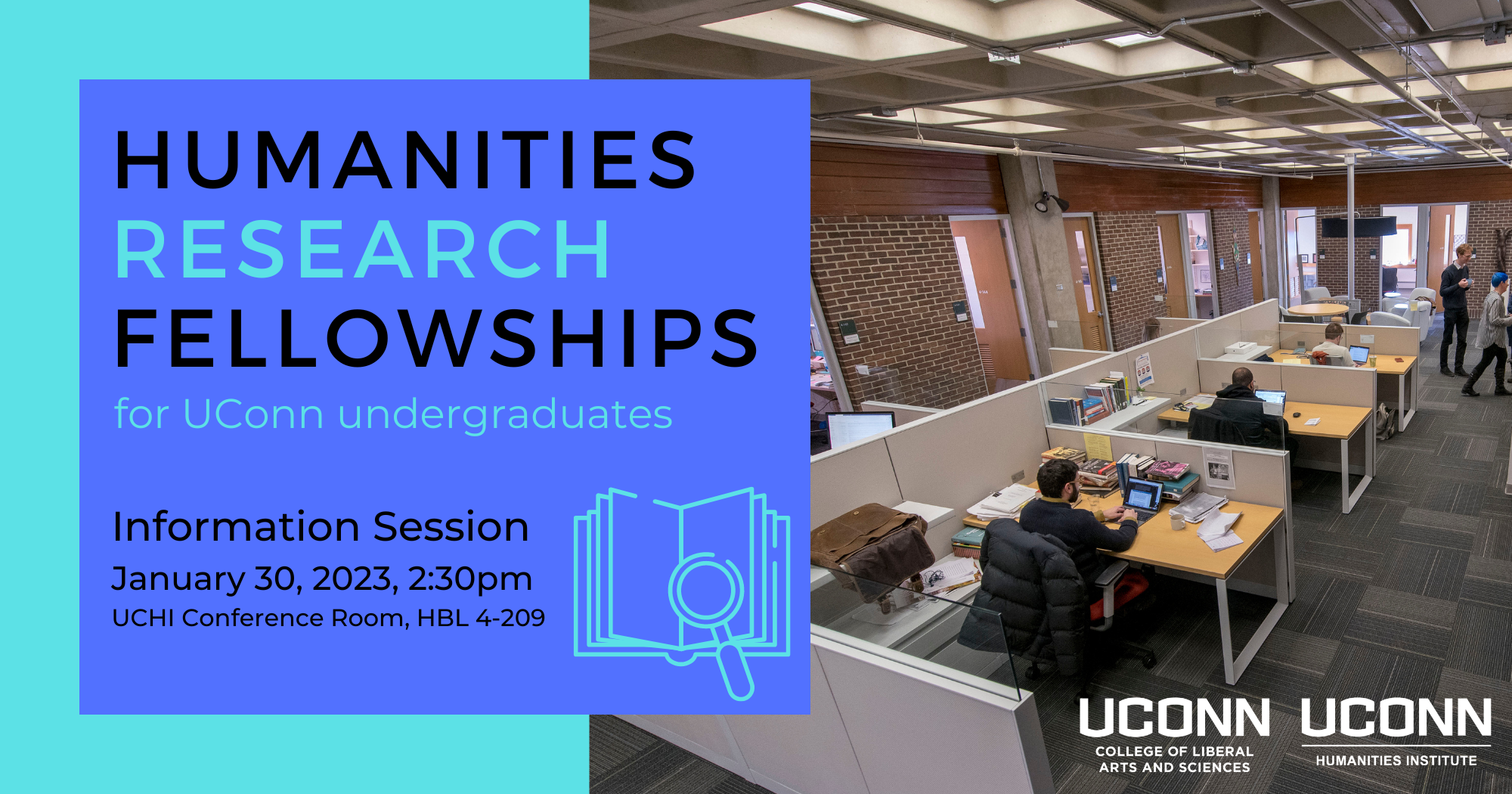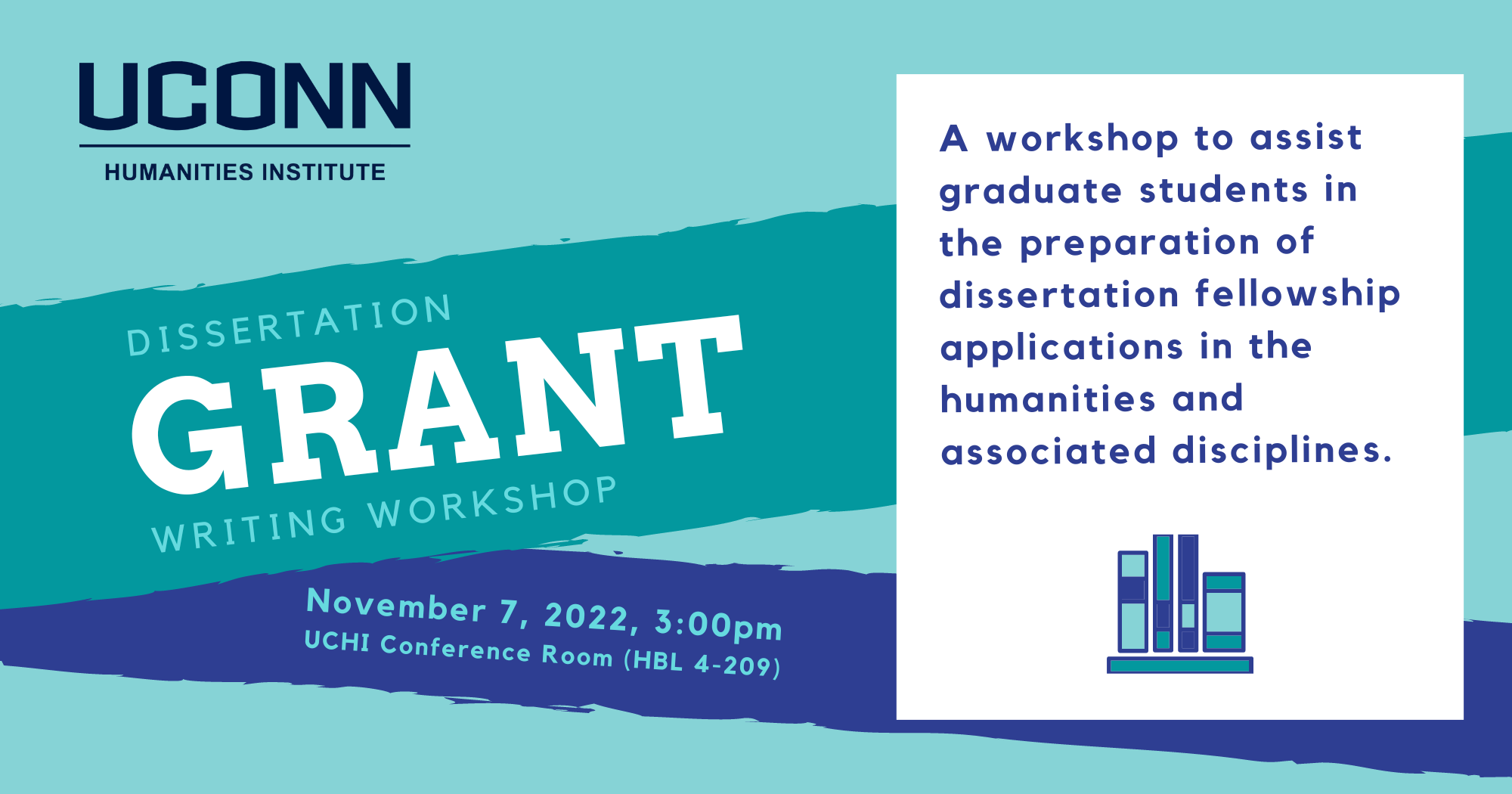The University of Connecticut Humanities Institute (UCHI) is proud to announce its incoming class of humanities fellows. We are excited to host four dissertation scholars (including the Draper Dissertation Fellow and the Richard Brown Dissertation Fellow), four undergraduate fellows, eight faculty fellows (including the Faculty of Color Working Group Fellow and the Faculty Success Fellow), and three external fellows. We have fellows representing a broad swath of disciplines, including History; English; Sociology; Linguistics; Anthropology; Classics; Art & Art History; American Studies; Literatures, Culture and Languages; Drama; and Women’s, Gender, and Sexuality Studies. Their projects take many forms including scholarly monographs, plays, and books of photography; span time frames from the ancient world to the present day; and cover topics from sign language, to enslavement, to health and disease. For more information on our fellowship program see our Become a Fellow page. Welcome fellows!
Visiting Fellows
Sara Matthiesen (History & Women’s, Gender, and Sexuality Studies, George Washington University)
“‘Free Abortion on Demand’ after Roe: A Reproductive Justice History of Abortion Organizing in the United States”
Jesse Olsavsky (American Studies & History, Duke Kunshan University)
“In The Tradition: The Abolitionist Tradition and the Roots of Pan-Africanism, 1830–1945”
Heather Ostman (English, SUNY Westchester Community College)
“Nineteenth-Century American Literature, Religion, and the Search for Grace”
Undergraduate Fellows
Kathryn Andronowitz (Project advisor: Bhoomi K. Thakore)
“The Tradwife Cultural Economy: A Comparative Case Study of Self-Branded Housewife Influencers on Social Media”
Kanny Salike (Project advisor: Diane Lillo-Martin)
“The Evolution of African American English (AAE) and Black American Sign Language (BASL) in the United States”
Hailey Strom (Project advisor: Sara R. Johnson)
“The Self and the Other: Perceptions of Identity in Ancient Greece and the Achaemenid Empire”
Evan Wolfgang (Project advisor: Gary M. English)
“I Am Going to the Lordy: A Dramatic Parable about the Life and Death of Charles Julius Guiteau”
Dissertation Research Scholars
Joscha Jelitzki (Literatures, Culture, and Languages)
Richard Brown Dissertation Fellow
“The Anti-Jewish ‘Lust Libel’ and its Deconstruction by Jewish Writers in Modern Vienna”
Yusuf Mansoor (History)
Draper Dissertation Fellow
“Native Americans in Tangier: Slaveries in the Early Modern Atlantic World”
Danielle Pierratti (English)
“Unoriginal: Transvocal works from Dante’s Purgatorio”
Julia Wold (English)
“Adapting Choice: Shakespeare, Video Games, and Early Modern Thought”
UConn Faculty Fellows
César Abadia-Barrero (Anthropology)
“Too Sick to Labor: Disease and Profit as the end of Capitalism”
Daniel Hershenzon (Literatures, Culture, and Languages)
“The Maghrib in Spain: Enslavement, Citizenship, and Belonging in the Early Modern Spanish Mediterranean”
Yohei Igarashi (English)
Faculty Success Fellow
“Word Count: Literary Study and Data Analysis, 1875–1965”
Hana Maruyama (History)
“Entangled Remains: Indigenous Relationalities & Caretaking in Japanese American Incarceration”
Gregory Pierrot (English)
“It Was Nation Time: Fictions of African American Revolution (Le Temps d’une nation noire: fictions révolutionnaires du Black Power)”
Janet Pritchard (Art and Art History)
“Abiding River: Connecticut River Views & Stories”
Fumilayo Showers (Sociology)
Faculty of Color Working Group Fellow
“Learning to Leave: Health Professions Education, the Afropolitan Imaginary, and Migration Aspirations in a Migrant Sending Nation.”
Peter Zarrow (History)
“A History of the ‘Museumification’ of the Forbidden City, Beijing, from 1900 to Today”
